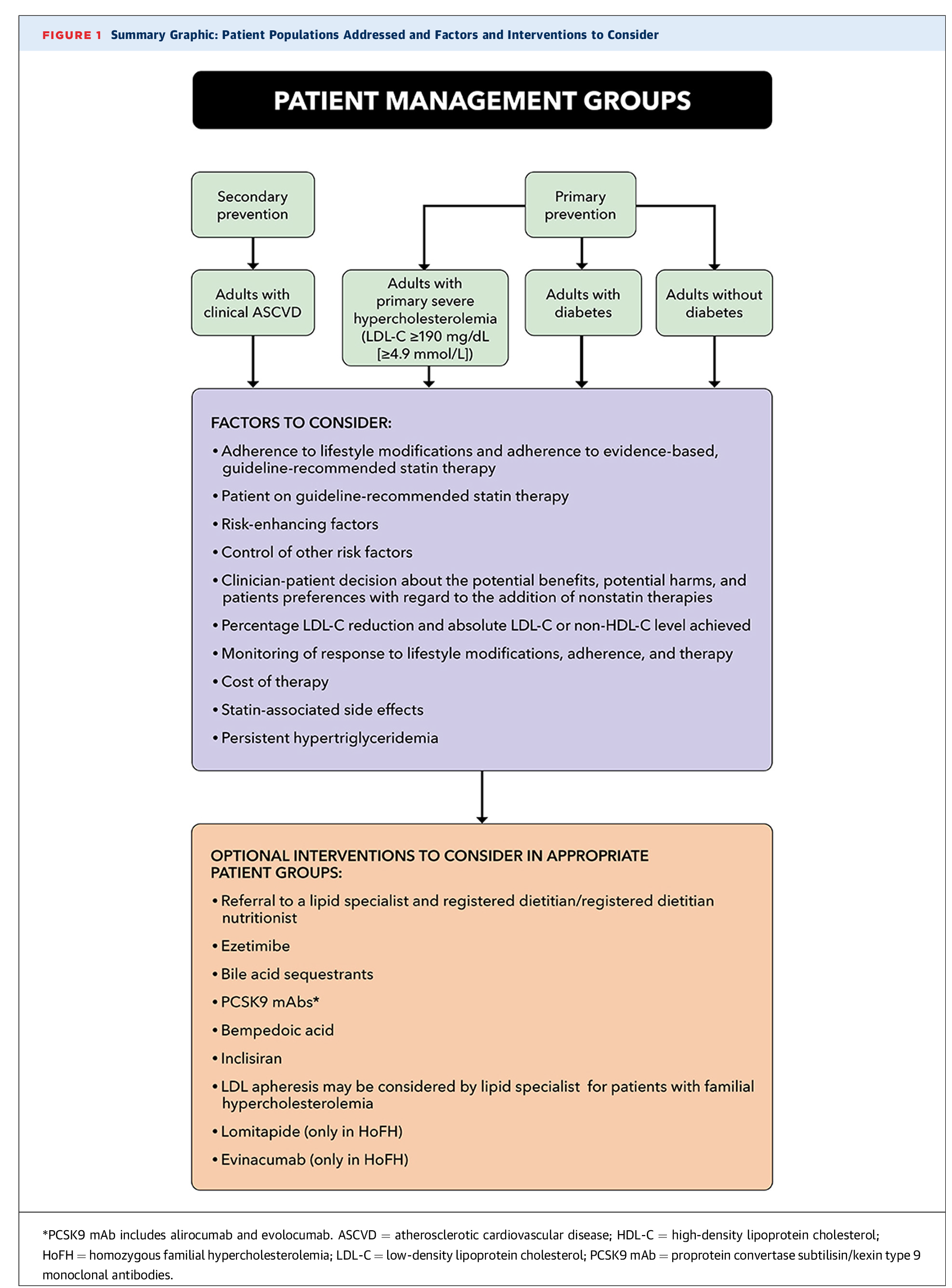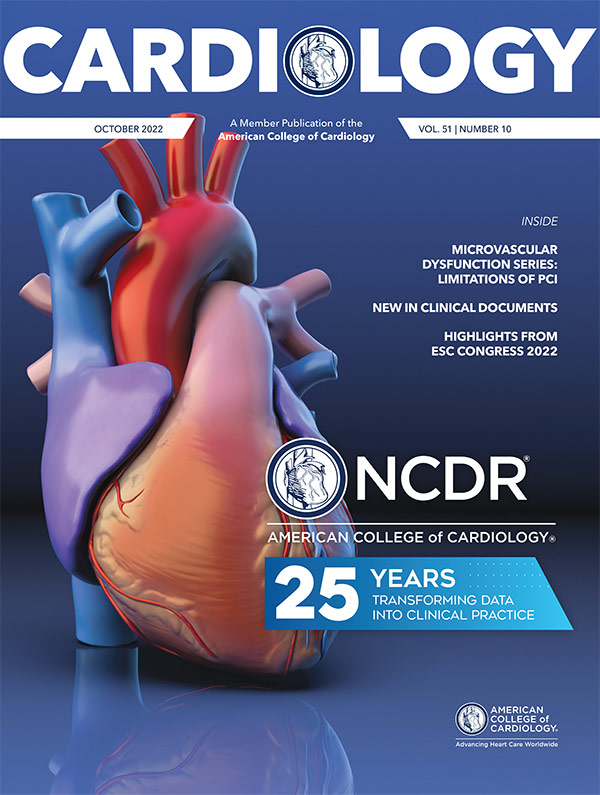New Expert Consensus Decision Pathway Addresses Use of Newer Nonstatin Therapies For Managing LDL-C in ASCVD Patients
A new ACC Expert Consensus Decision Pathway provides practical guidance for use of nonstatin therapies for LDL-C lowering in the management of atherosclerotic cardiovascular disease (ASCVD) risk. The document, published Aug. 25 in the Journal of the American College of Cardiology, aims to address situations regarding use of newer nonstatin therapies not covered by the 2018 AHA/ACC Cholesterol Guideline.
Over the last few years, "newer nonstatin agents have demonstrated LDL-C–lowering efficacy, have received FDA approval, and are commercially available for management of at-risk patients," the authors write. Additionally, they note that large clinical trials are ongoing for bempedoic acid and inclisiran. As such, the Writing Committee, chaired by Donald M. Lloyd-Jones, MD, FACC, and Vice Chair Pamela B. Morris, MD, FACC, looked at the following three key areas regarding the use of nonstatin therapies where recent scientific evidence is still under review and clinical trials are still underway:
- In what patient populations should newer nonstatin therapies be considered?
- In what situations should newer nonstatin therapies be considered?
- If newer nonstatin therapies are to be added, which therapies should be considered and in what order to maximize patient benefit and preference?
Specifically, the document provides algorithms that "endorse the four evidence-based patient management groups identified in the guidelines and assume that the patient is currently taking or has attempted to take a statin, given that this is the most effective initial therapy." Key recommendations address patient with clinical ASCVD at very high-risk and patients with clinical ASCVD and clinical diagnosis or genetic confirmation of familial hypercholesterolemia, as well as patients with clinical ASCVD not at very high risk, primary prevention patients with and without diabetes, and patients with evidence of subclinical atherosclerosis on imaging studies.
The document was endorsed by the National Lipid Association. Access CardioSmart's patient education tools and download ACC's ASCVD Risk Estimator Plus app.
Clinical Topics: Cardiovascular Care Team, Diabetes and Cardiometabolic Disease, Dyslipidemia, Invasive Cardiovascular Angiography and Intervention, Noninvasive Imaging, Prevention, Homozygous Familial Hypercholesterolemia, Hypertriglyceridemia, Lipid Metabolism, Nonstatins, Novel Agents, Primary Hyperlipidemia, Statins, Interventions and Imaging, Computed Tomography, Nuclear Imaging, Diet, Exercise
Keywords: Cholesterol, LDL, Hydroxymethylglutaryl-CoA Reductase Inhibitors, Cardiovascular Diseases, Atherosclerosis, Diabetes Mellitus, Hyperlipoproteinemia Type II, Primary Prevention, Patient Compliance, Cholesterol, Cardiac Imaging Techniques, Multidetector Computed Tomography, Vascular Calcification, Costs and Cost Analysis, Cost-Benefit Analysis, Diet, Drug Therapy, Dyslipidemias, Exercise, Lipid Metabolism, Inborn Errors, Genetic Diseases, Inborn, Hypercholesterolemia, Hypertriglyceridemia, Life Style, Risk Reduction Behavior, Lipids, Secondary Prevention, Risk Assessment, Risk Factors, Mass Screening, Decision Making, Hydroxymethylglutaryl-CoA Reductase Inhibitors, Triglycerides, Value of Life, Body Weight Changes, Cardiology Magazine, ACC Publications
< Back to Listings


